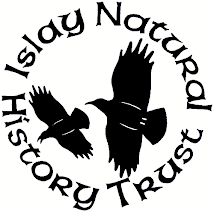Adding to 15 dossiers already published, these 47 documents provide summary information for invertebrate groups known to occur in Scotland, and including species checklists. This is the first time this information has ever been available in many cases. The new species knowledge dossiers cover a wide range of terrestrial and marine invertebrates, including earthworms, amphipods (marine & freshwaters shrimps, whale-lice, terrestrial shrimps and sandhoppers), ticks, dragonflies, butterflies, scorpionflies, alderflies, lacewings, snakeflies, bees, wasps, ants and parasitoid wasps.
The Scottish Invertebrate Species Knowledge Dossiers are a major step towards implementing the Strategy for Scottish Invertebrate Conservation.
You can read the news story here:
http://www.buglife.org.uk/News/New+Scottish+Invertebrate+Species+Checklists+Published
All 47 dossiers can be downloaded here:
http://www.buglife.org.uk/conservation/Scotland/Scottish+Species+Checklists/
And you can download the Strategy for Scottish Invertebrate Conservation here:
http://www.buglife.org.uk/Resources/Buglife/Documents/PDF/ScottishStrategy.pdf
The Scottish Invertebrate Species Knowledge Dossiers have been kindly prepared by experts, and provide basic summary information for invertebrate groups known to occur in Scotland – including Scottish species checklists.
This is the first time this information has been available in a single place – and, in many cases, the first time it has ever been available.
Ultimately, this series aims to cover all groups of invertebrates known to occur in Scotland – terrestrial, freshwater and marine. Additional Scottish Invertebrate Species Knowledge Dossiers will be published online as they are completed.
If you are able to help complete a dossier for another group, and are not already involved in preparing this, please get in touch – this is a monumental and important step for invertebrate conservation in Scotland, and your help would be greatly appreciated. After all, the first step in conserving any group of animals is knowing what is present in the first place. This allows us to target conservation action and to identify knowledge gaps. If you don’t know what you have, you can’t protect it.
http://www.buglife.org.uk/
Subscribe to:
Post Comments (Atom)
















No comments:
Post a Comment